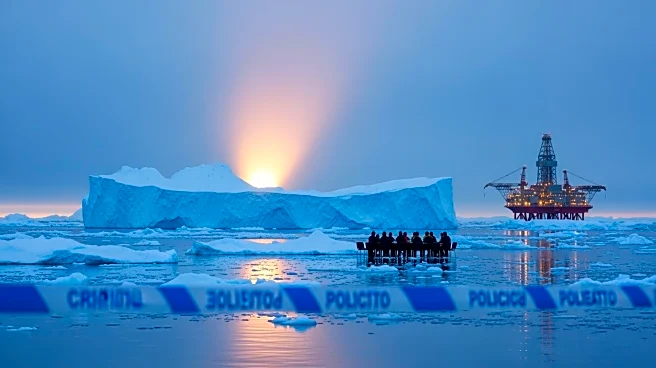What's Happening?
Russia's Arctic LNG 2 project has loaded another tanker with liquefied natural gas, despite ongoing Western sanctions. The Christophe De Margerie tanker departed from the facility after loading a cargo, as reported by LSEG and Kpler. Arctic LNG 2 was
initially set to become one of Russia's largest LNG plants, with a projected output of 19.8 million metric tons annually. However, it has been affected by U.S. sanctions due to Russia's actions in Ukraine. Despite these challenges, the project has delivered multiple cargoes to China's Beihai terminal this year, indicating continued operations and China's increased energy imports from Russia.
Why It's Important?
The continued operation of Arctic LNG 2 highlights the resilience of Russia's energy sector amid international sanctions. It underscores the strategic importance of LNG in global energy markets, particularly for countries like China that are ramping up imports. The situation reflects broader geopolitical dynamics, where energy resources play a crucial role in international relations. The sanctions aim to weaken Russia's oil and gas sector, but the ongoing exports to China suggest alternative markets are being leveraged.
What's Next?
The ongoing sanctions may lead to further adjustments in Russia's energy export strategies, potentially increasing reliance on non-Western markets. The situation could prompt other countries to reassess their energy dependencies and explore alternative sources. The geopolitical implications of energy trade will likely continue to influence international policy decisions, particularly in relation to Russia's actions in Ukraine.
Beyond the Headlines
The Arctic LNG 2 operations highlight the complex interplay between energy security and geopolitical tensions. The reliance on LNG underscores the global shift towards cleaner energy sources, despite political challenges. The situation may also impact global LNG pricing and availability, influencing energy strategies worldwide.















